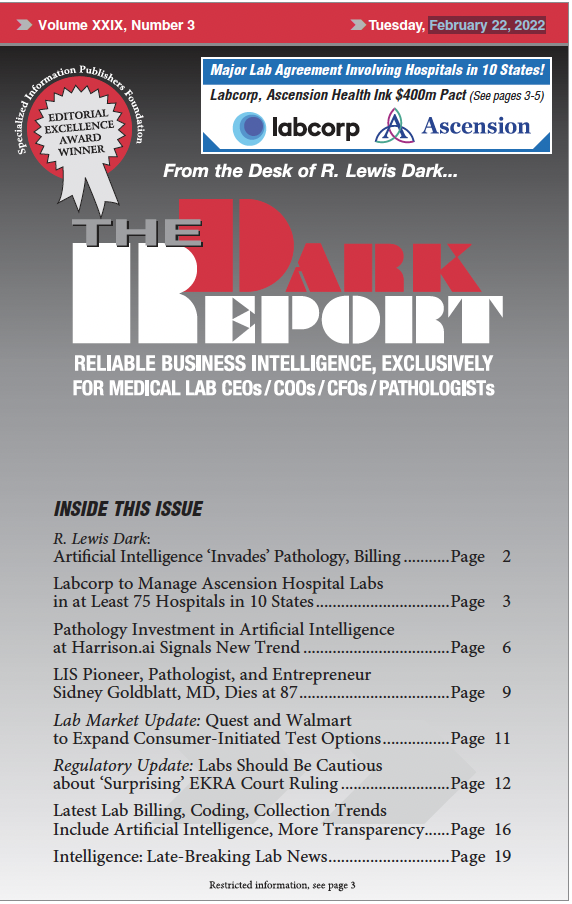CONFUSION ABOUT WHEN IT IS LEGAL UNDER TWO FEDERAL LAWS to pay commissions to sales reps based on volume and/or revenue has existed since the passage of the federal Eliminating Kickbacks in Recovery Act of 2018 (EKRA). Now, a district court judge in Hawaii has surprisingly ruled that payments of percentage-based sales commissions to clinical …
Labs Should Be Cautious about ‘Surprising’ EKRA Ruling Read More »
To access this post, you must purchase The Dark Report.


